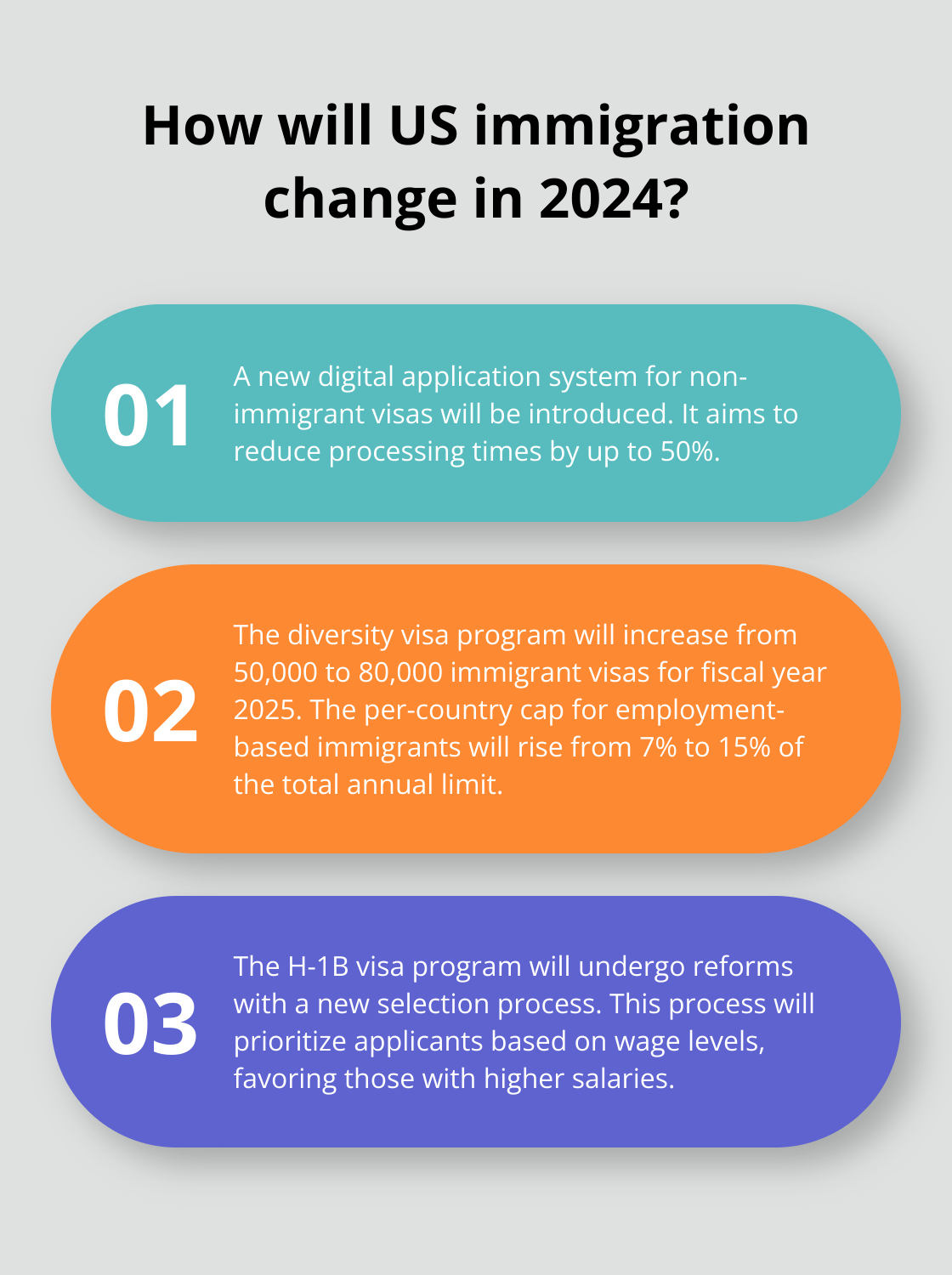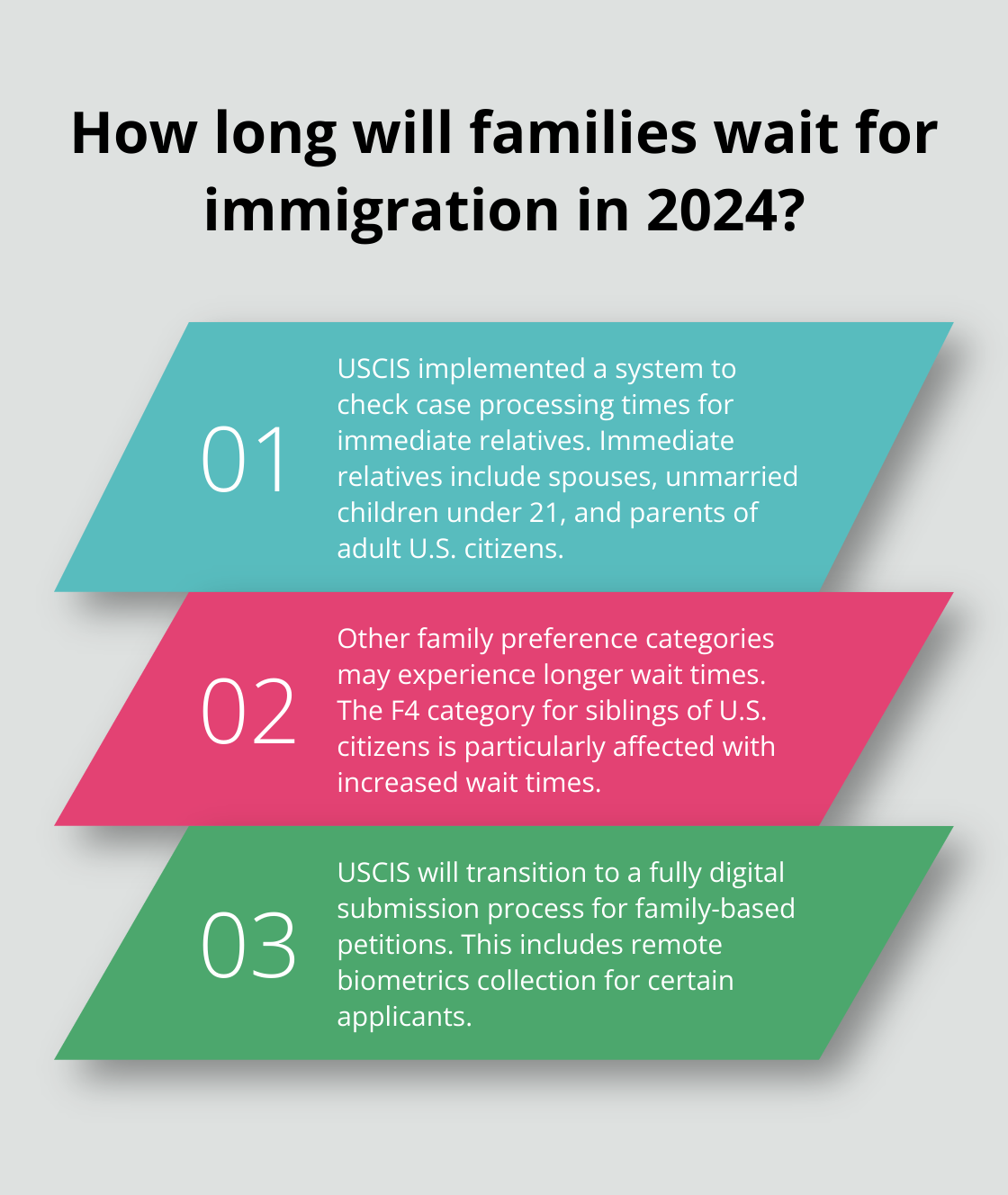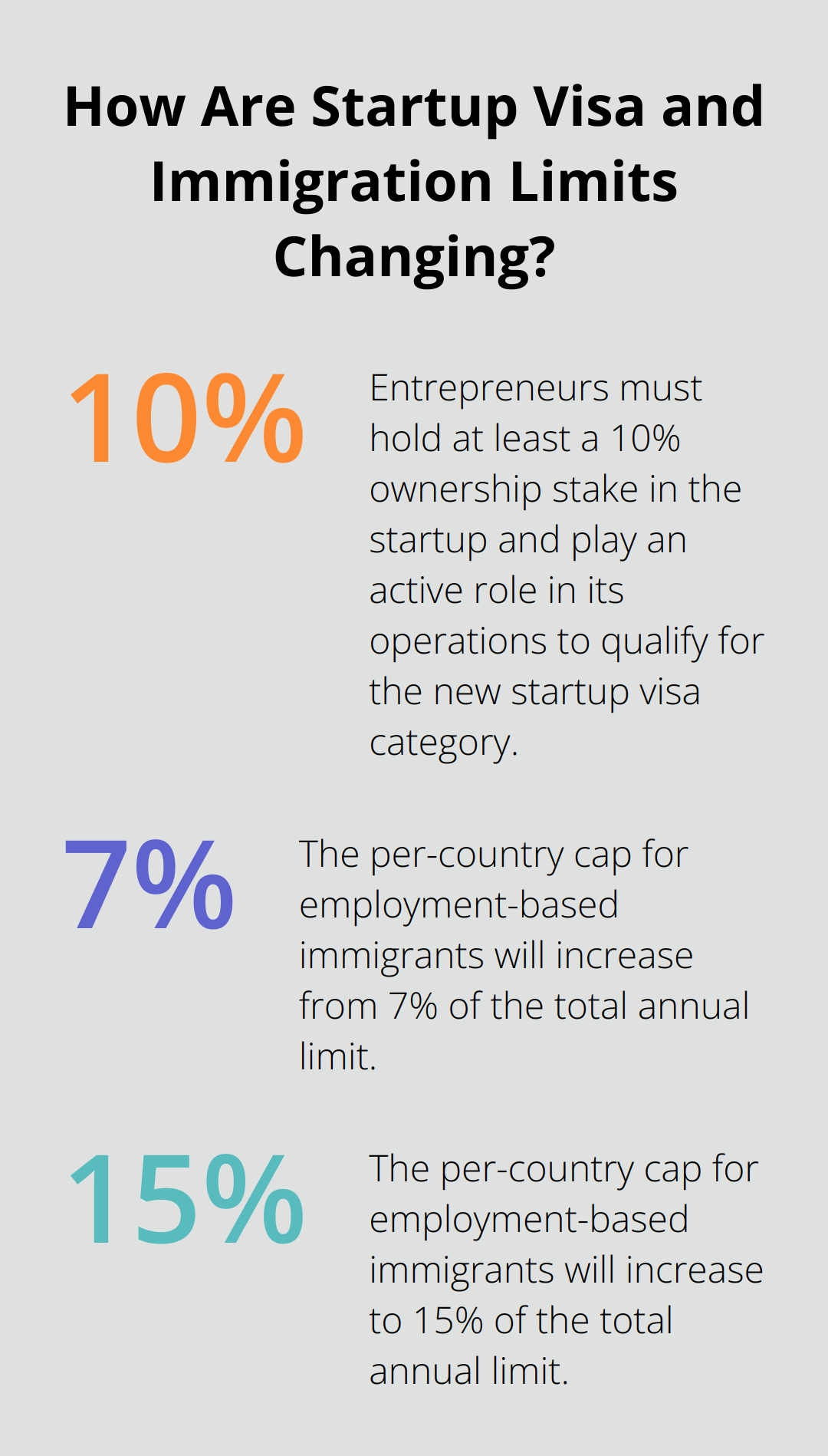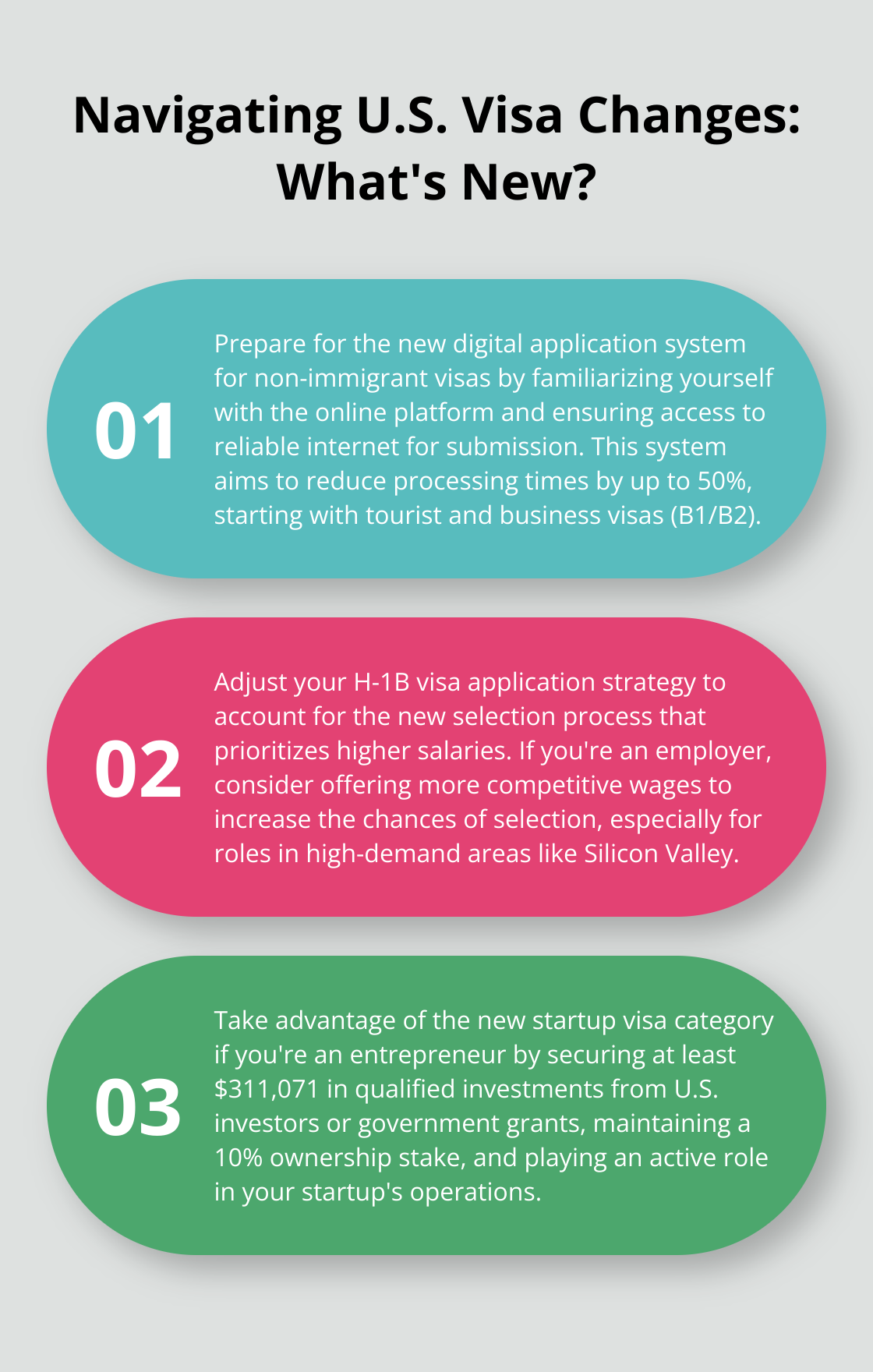
New US Immigration Laws for 2024: Key Changes
The landscape of U.S. immigration is set to change dramatically in 2024. New immigration laws in the USA will reshape visa processes, family reunification policies, and employment-based immigration.
At Law Offices of Jeffrey A. Thompson, we’ve analyzed these upcoming changes to help our clients navigate the evolving legal terrain. This post breaks down the key updates and their potential impact on immigrants and their families.
What’s New in US Immigration Policy for 2024?
The U.S. immigration system will undergo significant changes in 2024. New policies will reshape various aspects of the immigration process. These updates will affect visa applications, quota systems, and employment-based immigration, creating both challenges and opportunities for those seeking to enter or remain in the United States.
Visa Process Overhaul
The U.S. Department of State has announced a new digital application system for non-immigrant visas. This system aims to reduce processing times by up to 50%. The rollout will occur gradually throughout 2024, starting with tourist and business visas (B1/B2). Applicants should prepare for this transition by familiarizing themselves with the new online platform and ensuring access to reliable internet connections for application submission.
Quota System Adjustments
The annual visa quota system will see significant modifications. The diversity visa program will increase from 50,000 to 80,000 immigrant visas for fiscal year 2025. This change promotes greater diversity in the U.S. immigrant population. Additionally, the per-country cap for employment-based immigrants will rise from 7% to 15% of the total annual limit. This adjustment potentially reduces wait times for applicants from high-demand countries (such as India and China).
Employment-Based Immigration Updates
New regulations will attract and retain global talent in employment-based immigration. The H-1B visa program, vital for skilled workers, will undergo reforms. A new selection process will prioritize applicants based on wage levels, favoring those with higher salaries relative to their occupation and location. This change ensures that H-1B visas go to the most skilled and highest-paid workers.
New Startup Visa Category
Immigrant pathways offer opportunities to work in the United States for a range of reasons on a more permanent basis. This includes options for entrepreneurs who can demonstrate substantial investment or potential for rapid business growth and job creation in the U.S.

These policy changes reflect a shift towards a more merit-based immigration system while addressing long-standing issues of backlogs and wait times. As these new policies take effect, potential immigrants and their employers must stay informed and adapt their strategies. The impact of these changes on family-based immigration will be equally significant, reshaping the landscape for those seeking to reunite with their loved ones in the United States.
How Will Family-Based Immigration Change?
The landscape of family-based immigration will undergo significant transformations in 2024. These changes will affect processing times, financial requirements, and overall policies for family reunification.
Streamlined Processing for Immediate Relatives
USCIS has implemented a system to check case processing times for immediate relatives of U.S. citizens. This includes spouses, unmarried children under 21, and parents of adult U.S. citizens. Applicants can select their form, form category, and the office processing their case to get an estimate of processing times.
Extended Wait Times for Other Family Preference Categories
While immediate relatives will see faster processing, other family preference categories may experience longer wait times. The F4 category (siblings of U.S. citizens) is particularly affected, with projected wait times increasing for countries with high demand.
New Financial Support Requirements
Sponsors will need to use the HHS Poverty Guidelines when completing Form I-864, Affidavit of Support Under Section 213A of the INA. This change in financial requirements may affect the sponsorship process for family members.
Digital Submission and Biometrics
USCIS will transition to a fully digital submission process for family-based petitions. This includes the implementation of remote biometrics collection for certain applicants. While this aims to speed up the overall process, it may present challenges for applicants with limited access to technology or those unfamiliar with digital systems.

These changes to family-based immigration policies reflect a broader shift in U.S. immigration strategy. Some families will benefit from faster processing times, while others may face new hurdles. Understanding these changes and preparing accordingly will be essential for successful family reunification in 2024 and beyond.
As we shift our focus to employment-based immigration, we’ll explore how these new policies will impact skilled workers, entrepreneurs, and businesses seeking to hire foreign talent.
How Will Employment-Based Immigration Change?
The landscape of employment-based immigration will transform significantly in 2024. These changes will affect skilled workers, entrepreneurs, and businesses that seek to hire foreign talent.
H-1B Visa Program Overhaul
The H-1B visa program, a cornerstone of skilled worker immigration, will undergo major revisions. The new selection process will prioritize applicants based on wage levels, favoring those with higher salaries relative to their occupation and location. This shift aims to ensure that H-1B visas go to the most skilled and highest-paid workers.

A software engineer in Silicon Valley earning $150,000 per year will have a higher chance of selection compared to one earning $90,000 in a similar role. This change will likely benefit tech giants and established companies that can offer higher salaries, while potentially disadvantaging startups and smaller businesses.
The annual cap for H-1B visas will remain at 85,000 (with 20,000 reserved for holders of U.S. master’s degrees or higher). However, the selection process will now occur twice a year, in March and August, providing more opportunities for employers to secure visas for needed talent.
Green Card Process Updates
The green card process for skilled workers will see significant updates aimed at reducing backlogs and wait times. The National Interest Waiver (NIW) category will expand, allowing more STEM professionals to bypass the labor certification process. This change could potentially benefit thousands of researchers, engineers, and scientists working in fields deemed critical to U.S. interests.
Additionally, the per-country cap for employment-based immigrants will increase from 7% to 15% of the total annual limit. This adjustment will particularly benefit applicants from high-demand countries like India and China, potentially reducing their wait times by several years.
New Pathways for Entrepreneurs
A new startup visa category will be introduced, aimed at attracting innovative entrepreneurs to the United States. This visa will be available to founders who can demonstrate substantial investment or potential for rapid business growth and job creation.
To qualify, entrepreneurs must show at least $311,071 in qualified investments from U.S. investors or government grants. They must also hold at least a 10% ownership stake in the startup and play an active role in its operations.
This new visa category represents a significant opportunity for international entrepreneurs looking to establish or expand their businesses in the U.S. market.
These changes in employment-based immigration reflect a shift towards a more merit-based system, with a focus on attracting and retaining high-skilled talent. As these new policies take effect, both employers and potential immigrants must stay informed and adapt their strategies accordingly.
Final Thoughts
The new immigration laws for 2024 in the USA will transform visa processes, family reunification, and employment-based immigration. These updates will streamline certain procedures while introducing new challenges in others. The digital transformation of visa applications will speed up processing times, but the shift towards a merit-based system in employment visas will create hurdles for some while opening doors for others.

Family-based immigration will see improvements and potential setbacks. Immediate relatives of U.S. citizens can expect faster processing times, but other family preference categories might face longer wait periods. The revamped H-1B program and expanded green card opportunities for STEM professionals signal a focus on attracting high-skilled talent.
At Law Offices of Jeffrey A. Thompson, we understand the complexities of these new immigration laws. Our expertise in immigration law allows us to guide clients through the intricacies of visa applications, family reunification processes, and employment-based immigration. We provide personalized assistance, ensuring that our clients are well-prepared to meet new requirements and leverage new opportunities.


